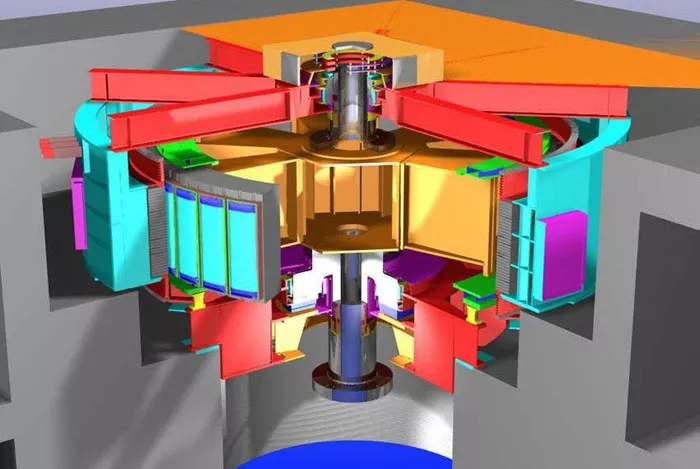The Hydro Electric Core Generator has won the Renewable Energy Innovation Challenge 2024, recognized for its innovative solution to Nigeria’s electricity deficit.
Among twelve finalist projects, including Waste2Light, Agroflow, and SunPod, the Hydro Electric Core Generator stood out for its scalable approach to hydroelectric power generation. Agroflow was named the Audience Favorite, while E-Waste2E-Access and Loopbox secured second and third places, respectively.
James Emmanuel Ikenna, the founder of the Hydro Electric Core Generator, expressed his commitment to improving energy access in Nigeria. “Nigeria has the highest number of people without electricity in the world, with over 86 million still without power,” he said. He believes his innovation can bridge this gap, especially in rural areas with limited access to conventional power.
Unlike traditional large-scale hydroelectric systems that require significant infrastructure, Ikenna’s design is smaller and more affordable. The Hydro Electric Core Generator operates using a pump to move water into a small receiver tank, which smooths the flow of direct current. This method eliminates the need for fuel, relying solely on recycled water within the system, making it sustainable and cost-effective.
The 3kVA model is estimated to cost around N200,000 to build and between N220,000 and N230,000 to purchase, making it a viable power source for low-income households. “You don’t need fuel, just water,” Ikenna emphasized, highlighting its affordability.
In his acceptance speech, Ikenna thanked the Consumer Advocacy and Empowerment Foundation (CADEF) and Jacob’s Ladder Africa for their support. He urged government and private sector leaders to help make his project available to rural communities with limited energy access. “Electricity fosters great research and can drive technological advancement,” he stated.
Prof. Chiso Ndukwe-Okafor, executive director of CADEF, noted that the Renewable Energy Innovation Challenge aimed to promote clean energy solutions across Nigeria. “We launched this challenge to help participants refine their ideas with the help of mentors and industry experts,” she said.
Prof. Ndukwe-Okafor emphasized the need for a shift in mindset among innovators. “Without a shift in perspective, we risk following ineffective paths that have held back our country,” she warned. By building the right business structures, she believes these entrepreneurs can achieve success and sustainability.
The partnership between CADEF and Jacob’s Ladder Africa aims to create a new generation of Nigerian entrepreneurs equipped with innovative solutions and the resilience needed to contribute to Nigeria’s energy independence and economic growth.
Karen Chelangat, Chief Innovation Officer at JLA, highlighted the importance of partnerships in addressing challenges in Africa. “The challenges in Africa require collaboration among people and organizations with shared values,” she stated.
Chelangat mentioned JLA’s goal to create 30 million jobs in Africa’s green economy by 2033. “In 2022, the U.S. invested as much in renewable energy as in fossil fuels, signaling a global shift,” she noted. JLA aims to empower young Africans with skills in renewable energy, water management, and sustainable food systems.
Gaji Omobolaji Tajudeen, Permanent Secretary of the Office of Environment Services in Lagos, encouraged young innovators to take action. “Your ideas have the potential to reshape communities and create sustainable futures,” he said. “We must innovate for today while considering the long-term impacts on our society, economy, and environment.”
Related Topics
- Three Arrested For Alleged Involvement In 28 Generator Thefts
- Manufacturers Face Daily 18-Hour Power Cuts In Zimbabwe
- Lunenburg Municipality Acquires Generators For Sewage Systems

